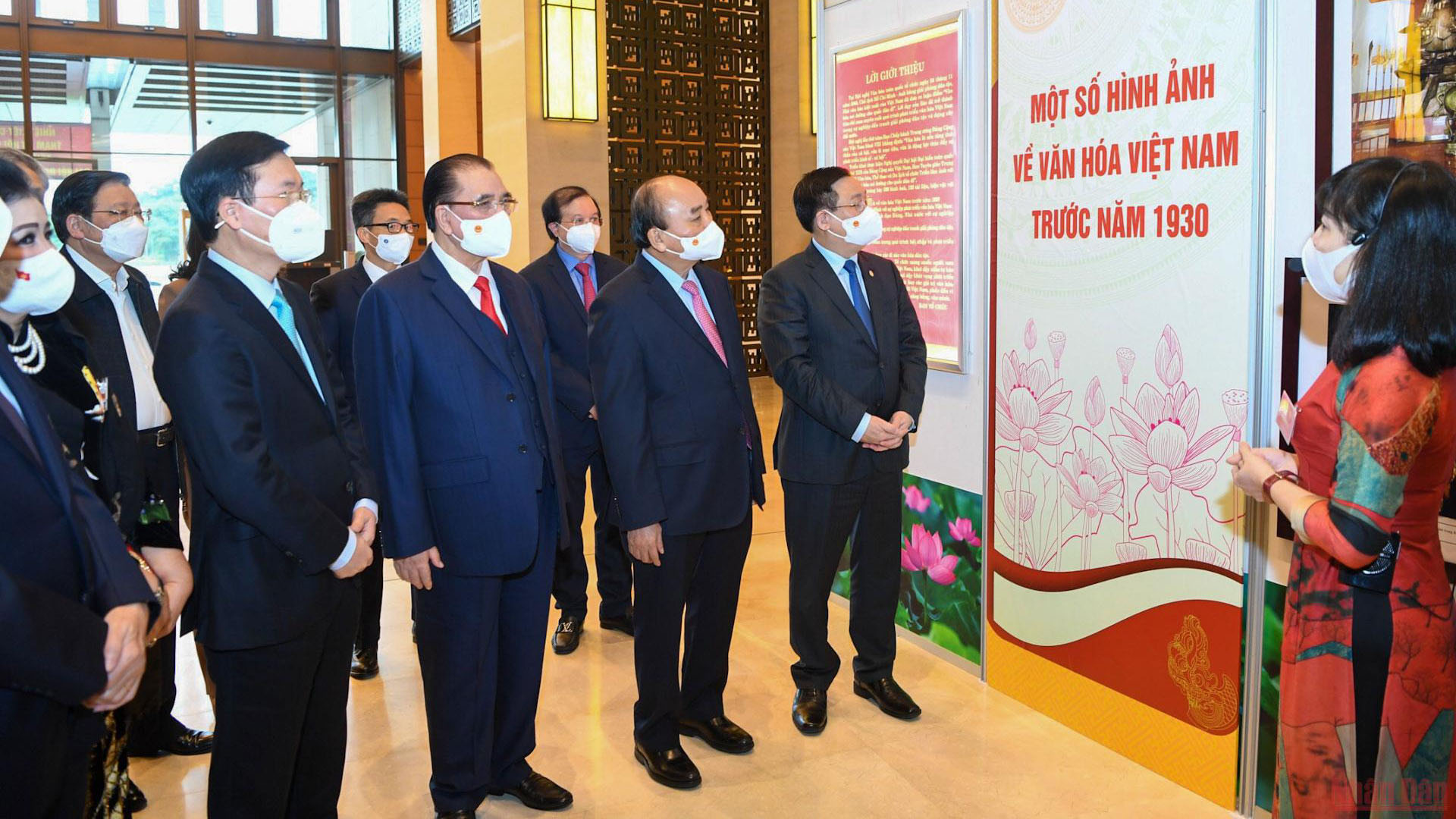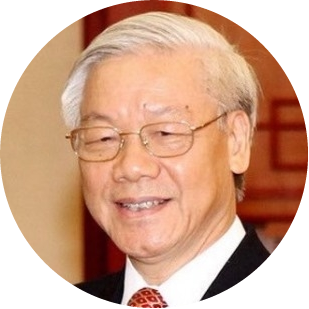The Hanoi Old Quarter Cultural Exchange Centre in coordination with artists of the Dong Kinh Co Nhac Art Group organise an art show introducing ancient melodies of Hanoi such as ‘tuong’ (classical drama), ‘cheo’ (traditional opera), and ‘ca tru’ (ceremonial singing). (Photo: Thuy Nguyen)
On that basis, the Party leader affirmed that to continue building, preserving, revitalising and developing national culture, it is crucial to focus on six key tasks.
The first is to further evoke patriotism, self-reliance, solidarity and the aspiration to develop a prosperous and happy country.
Secondly, it is essential to focus on building the Vietnamese people with appropriate standard values during the period of renewal, development and integration.
The third and fourth tasks are to comprehensively and synchronously develop the fields of culture, cultural environment, and cultural life; and to promote the role of the people, who are both actors and beneficiaries of cultural creativity, thus upholding and promoting the pioneering role of intellectuals, artists and those working in the cultural sector.
Fifthly, the work of building the Party and political system in terms of culture and morality should receive great attention, towards resolutely fighting against corruption and negative phenomena in order to build a truly “virtuous and civilised” party and political system, which represent the conscience and dignity of the Vietnamese people.
Sixthly, a digital cultural environment and a healthy cultural market should be built and developed.

To revitalise and develop the national culture, the value system and the strength of the Vietnamese people need to be aroused with the desire to build a prosperous and powerful nation.
General Secretary Nguyen Phu Trong
In order to fulfil the six tasks above, the Party chief determined that Vietnam needs to focus on drastically and effectively implementing the following four solutions.
Firstly, it is necessary to continue improving the awareness and leadership capacity of Party and State management over the cultural sector to meet the requirements of cultural development and develop Vietnamese people in the period of developing a socialist-oriented market economy as well as stepping up the national industrialisation, modernisation and international integration process.
The second solution is to develop and train the staff who are directly engaged in cultural activities in line with the requirements and tasks of developing Vietnamese culture in the new period.
Thirdly, authorities should pay more attention to the preservation, embellishment and promotion of national cultural values and tangible and intangible cultural values of regions and ethnic minorities, combined with the continued collection of the cultural quintessence of the times, while developing the "soft strength" of Vietnamese culture and contributing to improving the national synergy in the coming time.
Fourthly, it is crucial to focus on building a culture of healthy behaviour in society, promoting the positive values of the fine customs and traditions of the family and society; to uphold the spirit of mutual affection and the tradition of good solidarity; and respecting justice and social morality. Building codes of civilised behaviour in public agencies, in the community, in the world of artists and writers, and especially in cyberspace; resolutely and persistently fighting against excessive bureaucracy, corruption, as well as negativity, degradation of political ideology, morality and lifestyle, and “wiping out individualism”, which is the source of all excessive bureaucracy, negativity and corruption even within the cultural sector and cultural agencies.












